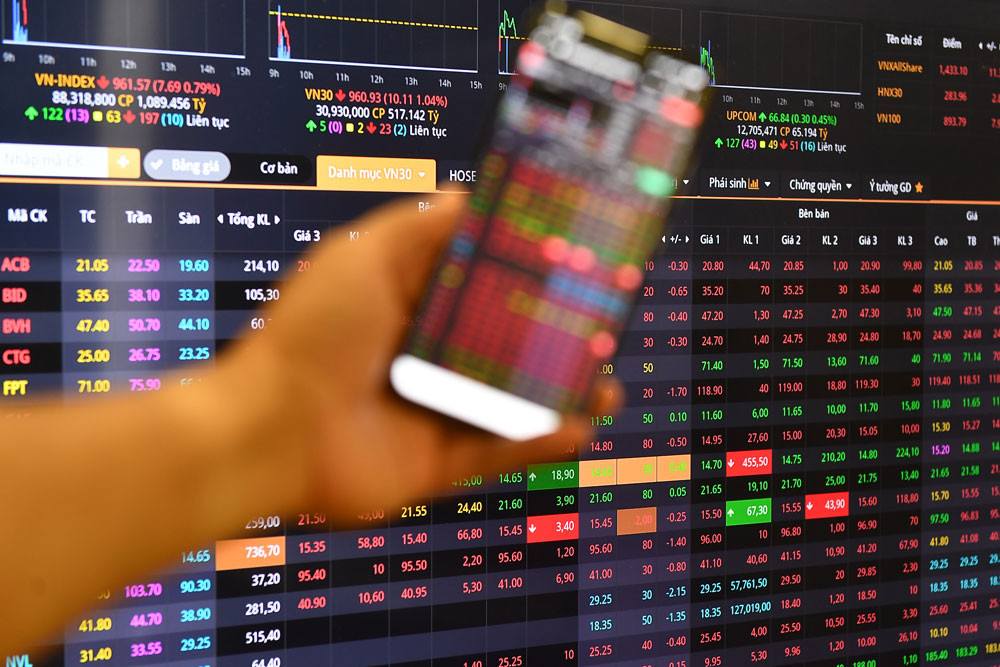
A series of bold policy moves by U.S. President Donald Trump have sent shockwaves across global markets. Vietnam's $200 billion stock exchange has experienced sharp fluctuations, initially declining at the start of the week before rebounding. However, concerns persist as the market enters an information gap with uncertain global trends.
Vietnam's stock market reacts to Trump's trade policies
As the Lunar New Year holiday ended, Vietnam’s stock market opened on February 3 with a sharp decline following Trump's announcement of steep import tariffs on goods from Canada, Mexico, and China.
However, on February 4, markets stabilized and rebounded after the U.S. delayed tariff enforcement on Canada and Mexico for one month, allowing room for diplomatic negotiations.
China, on the other hand, faced immediate U.S. tariffs of 10%, prompting Beijing to retaliate with a 15% tax on U.S. coal and liquefied natural gas and a 10% levy on crude oil and agricultural equipment. The brewing trade war between the world's two largest economies intensified as Trump postponed his planned meeting with Chinese President Xi Jinping.
Despite global uncertainty, Vietnam's VN-Index posted three consecutive gains from February 5 to 7, closing the week at 1,275 points, up 0.7% from pre-holiday levels. At one point, it even approached 1,280 points.
Domestic factors fueling market momentum
Vietnam's stock market rally has been supported by strong corporate earnings, particularly from key sectors such as banking, real estate, retail, and consumer goods.
Additionally, the Vietnamese government has proposed raising the GDP growth target for 2025 from 6-6.5% to 8% while adjusting inflation expectations to 4.5-5%. This has boosted investor sentiment, driving up demand for key stocks.
The banking sector, often referred to as the "king sector", attracted significant capital inflows, with strong gains in VietinBank (CTG), BIDV (BID), Techcombank (TCB), and MBBank.
Other sectors, such as mining (MSR, BMC) and pharmaceuticals (IMP, DHT), also saw strong inflows.
Despite domestic optimism, foreign investors continued their massive sell-offs, dumping over VND 4.2 trillion ($170 million) worth of shares in the first week of the Lunar New Year. Major blue-chip stocks such as Masan (MSN), Vinamilk (VNM), and FPT were heavily impacted.
This trend has been ongoing, with foreign investors selling a record VND 94 trillion ($3.8 billion) in 2024. The heavy outflows signal persistent caution among international investors, potentially due to interest rate differentials and concerns over a global trade war.
VN-Index facing strong resistance at 1,280-1,300 points
According to Dinh Quang Hinh, Head of Market Strategy at VNDirect Securities, the Vietnamese government remains committed to economic growth, likely leading to continued fiscal expansion and monetary easing in 2025.
Despite this, the VN-Index is now approaching a critical resistance zone between 1,280-1,300 points, which it struggled to break in 2024.
While economic growth indicators remain positive, foreign capital outflows and a lack of strong catalysts could prevent the index from breaking through resistance levels in the near term. Instead, sideways movement and sector rotation are expected as investors seek short-term opportunities.
Trump’s policies and global market risks
Vietnam's stock market remains vulnerable to external shocks, particularly global economic instability and aggressive U.S. policies under Trump. If major international stock markets experience sharp declines, Vietnam’s VN-Index could face additional downward pressure.
Global risks such as inflation, currency fluctuations, and geopolitical uncertainty further complicate the outlook.
Investors are watching closely for policy measures such as interest rate cuts, increased public investment, and regulatory reforms to support market growth. These factors could help businesses expand profits and attract investment.
However, inflation risks, foreign capital flight, and ongoing trade tensions remain significant hurdles. The coming weeks will be crucial in determining whether Vietnam’s stock market can sustain its upward momentum or face renewed volatility.
Manh Ha